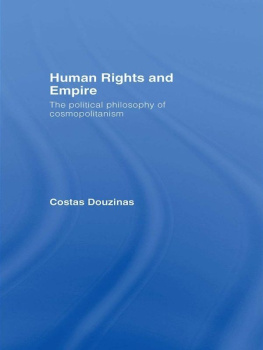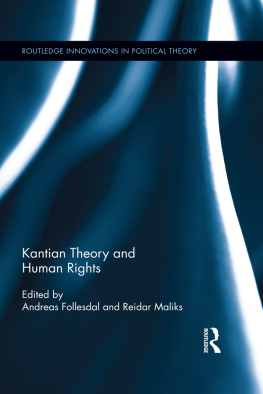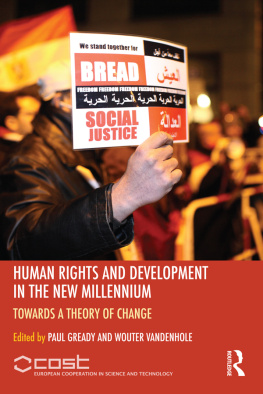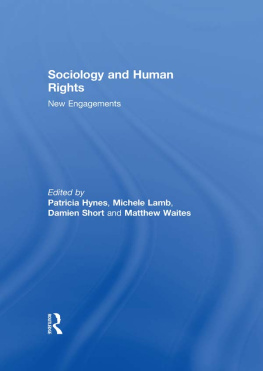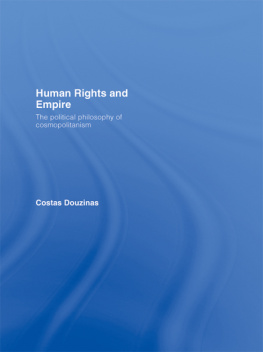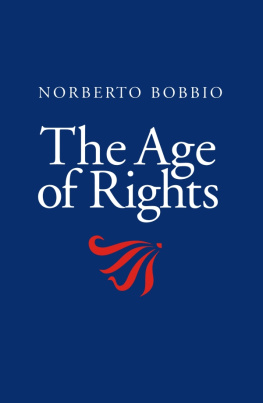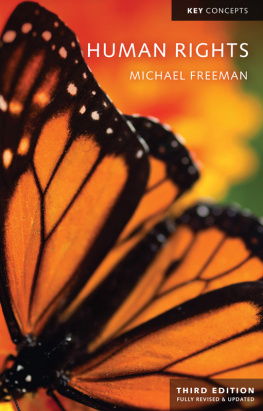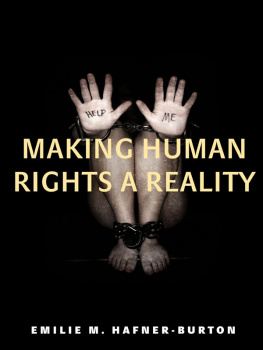The Legalization of Human Rights
The Legalization of Human Rights starts from a new and provocative premise: that the relationship between human rights and their legal expression is not a straightforward one, but needs careful scrutiny. This book explores the extent to which legalization shapes human rights aims, and surveys its ethical, political and practical repercussions. How does the law influence what we think about rights? What more is there to such rights than their legal protection? Does a legal framework for human rights omit some human rights issues? Expert contributors from a range of disciplines including political and moral theory, anthropology, sociology, international law, international politics and political science broach these questions.
For the last 55 years human rights activism, and human rights studies, have placed huge emphasis on legal processes. This book is therefore timely in promoting a debate on the balance sheet of the legal implementation of the human rights ideal.
Saladin Meckled-Garca and Baak ali invite students and researchers of human rights to question the gap between human rights as a moral and political concept, and human rights law, provoking the reader to consider the possibilities of deliberation on human rights outside of their legal manifestations.
Saladin Meckled-Garca is Director of the MA in Human Rights at UCL. His main area of work is political theory and philosophy, concentrating on human rights and international justice. He has published work in the areas of international justice, human rights, toleration and neutrality, ethics and the market.
Baak ali is Lecturer in Human Rights at the School of Public Policy, UCL. Her main area of research is international legal theory and practice focusing on human rights and humanitarianism. She has published work in the areas of global governance, human rights activism and transnational law.
The Legalization of Human Rights
Multidisciplinary perspectives on human rights and humanrights law
Edited by Saladin Meckled-Garca and Baak
ali
Routledge Taylor & Francis Group
LONDON AND NEW YORK
First published 2006 by Routledge 2 Park Square, Milton Park, Abingdon, Oxon OX14 4RN
Simultaneously published in the USA and Canada by Routledge 270 Madison Ave, New York,
NY 10016
Routledge is an imprint of the Taylor & Francis Group
This edition published in the Taylor & Francis e-Library, 2005.
To purchase your own copy of this or any of Taylor & Francis or Routledges collection of
thousands of eBooks please go to http://www.ebookstore.tandf.co.uk/.
2006 Saladin Meckled-Garca and Baak ali for editorial matter and selection;
individual contributors, their contributions
All rights reserved. No part of this book may be reprinted or reproduced or utilised in any form or
by any electronic, mechanical, or other means, now known or hereafter invented, including
photocopying and recording, or in any information storage or retrieval system, without permission
in writing from the publishers.
British Library Cataloguing in Publication Data A catalogue record for this book is available from
the British Library
Library of Congress Cataloging in Publication Data
The legalization of human rights: multidisciplinary perspectives on human rights and human rights
law/edited by Saladin Meckled-Garca and Baak ali.1st ed. p. cm. Includes bibliographical
references and index. 1. Human rights. 2. Human rights-Psychological aspects. 3. Human rights
Social aspects. I.Meckled-Garca, Saladin, 1968II. ali, Baak, 1974 K3240.L445 2005
342.085dc22 2005002572
ISBN 0-203-00868-5 Master e-book ISBN
ISBN 10: 0-415-36122-2 (hbk)
ISBN 10: 0-415-36123-0 (pbk)
ISBN 0-415-36122-2 (Print Edition)
eISBN: 978-1-13423-453-0
Illustrations
Figure
Tables
Contributors
Natalia lvarez Molinero is a consultant and researcher working on human rights and indigenous rights issues. She has collaborated with (among others), the United Nations High Commissioner for Human Rights; and the Universities of Arizona, Pretoria, and Deusto.
Upendra Baxi is Professor of Law at the University of Warwick.
Baak ali is a lecturer in Human Rights Law and Policy at the School of Public Policy, University College London.
David Chandler is Senior Lecturer in International Relations, Centre for the Study of Democracy, University of Westminster.
Jack Donnelly is the Andrew Mellon Professor at the Graduate School of International Studies, University of Denver.
Michael Freeman is Professor of Government at the Department of Government, University of Essex.
Ratna Kapur is Director of the Centre for Feminist Legal Research, and also teaches at the Indian Society for International Law, New Delhi. She is currently a fellow of the Programme for the Study of International Organization at the International Institute for Graduate Studies, Geneva.
Saladin Meckled-Garca is Lecturer in Human Rights and Political Theory, and Director of Human Rights Studies at the School of Public Policy, University College London.
Edward Weisband is the Edward S.Diggs Endowed Chair Professor at the Department of Political Science and the School of Public and International Affairs, Virginia Polytechnic Institute and State University.
Richard Ashby Wilson is Gladstein Chair of Human Rights and Director of the Human Rights Institute, University of Connecticut.
Anthony Woodiwiss is Professor of Sociology and Dean of the School of Social Sciences, City University, London.
Acknowledgements
This volume began life as a conversation. As a philosopher and an international lawyer respectively, we noticed that when we spoke about human rights we seemed to be talking about different things. Like many thinkers from our disciplines we had thought that because we used the same words (human rights) we were studying the same subject matter. Yet the content and the point of talking about these rights diverged with our disciplinary commitments.
Human rights studies is an inherently multidisciplinary subject area. Nevertheless, many institutions and many writers seem content to do human rights from a purely legal perspective (albeit with a nod given in the direction of the basis for these ideals, either in a historical process or a set of moral principles). Our awareness of disciplinary differences alerted us, then, to a potential problem. The extra-legal bases, sources of interpretation, sociological pre-requisites, and consequences, of human rights aims are an inherent aspect of our understanding of the development of the implantation of that ideal in social relations. So, a discussion explicitly focusing on the relation of the legal and extra-legal in human rights studies seemed to us a natural and necessary next step.
We would like to thank the individual authors in this volume for their enthusiastic engagement with this subject. Their valuable contributions initiated an ongoing debate, some of which is crystallized in the articles here present.
A huge debt is owed to Stanley Cohen, whose influence made this collection, its structure and idea, more perspicuous than it would otherwise have been. In compiling these essays we owe a great deal to Fabiana Farro for supplying detailed comments on factual questions beyond our expertise, and her enthusiastic support for the debate the book seeks to foster. We also owe an intellectual debt to Susan Marks, whose analysis of the effects of legalization in conversation helped to sharpen our understanding of this project. Similarly Juan Amaya-Castro gave us suggestive comments on the nature of international law, contracts, and what it means to bring the lawyers in when discussing human rights. We owe a special debt to Sally Welham, whose organizational and logistical expertise was indispensable for this project.


